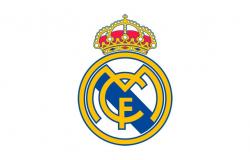In a move that is sure to make waves, Jean Perron once again ignited the media scene by predicting the upcoming resignation of Martin St-Louis, the head coach of the Montreal Canadiens.
According to Perron, St-Louis would leave his post before Christmas, unable to manage a team that he describes as “protected babies” and “molasses”.
For Perron, the current CH is a training without character, led by a coach whom he does not hesitate to compare to a pee-wee coach.
Invited to Radio Perron goes so far as to say that St-Louis itself could encourage this transition, seeing in Vincent a leader more suited to the challenges of the CH.
Perron’s criticism comes at the heart of a difficult start to the season for the Canadian, and this is not the first time that the former coach has been ruthless.
According to him, St-Louis’ methods, particularly its punitive training, are ineffective. Perron praises the harsher methods of his time, going so far as to mention his famous “two practices a day” to bring players into line.
However, this media outing from Perron adds to a series of statements which have sometimes made fun of his own reputation.
Recently, a revelation from Serge Savard, former general manager of the Canadiens, highlighted the marginalization of Perron during his time behind the bench in the 1980s. Savard said that Jacques Lemaire, then assistant, actually had control over key decisions regarding players like Stéphane Richer, leaving Perron in a walk-on role.
A revelation which only further tarnished the image of Perron, often perceived today as a “media clown”.
In addition, a recent incident during an interview on Radio X has further weakened his credibility. Asked to speak about Patrik Laine, Perron awkwardly suggested that the player could suffer from mental problems, a comment which sparked general indignation.
Although he attempted to clarify his comments, saying he was referring to the mental toughness needed to excel in the NHL, the damage was done, and the former coach was the target of ridicule.
In an era where social networks and sports shows exploit every misstep, Jean Perron seems more and more trapped by his own frankness, with shows like La Poche Bleue which do not hesitate to caricature him.
Behind this public decline, there is a family which, helpless, witnesses this descent into hell, a painful spectacle where Perron has become, in the eyes of many people, a figure of mockery more than a respected veteran.
Thus, by attacking Martin St-Louis and announcing his imminent resignation, Jean Perron reinforces his role as implacable critic of the Canadian.
However, for a man who sees himself reduced to the rank of a simple scapegoat for the mistakes of the past, are his words still taken seriously?
To get into the unmentioned details of Jean Perron’s intervention and its repercussions, it is essential to understand the broader context of his criticisms as well as the reactions of those around him and the media.
Jean Perron did not limit himself to predicting the resignation of St-Louis; he used provocative terms to describe his management style, saying that St-Louis was a “pee-wee coach” who failed to adapt his approach to guide NHL players.
According to Perron, St. Louis’ approach is far too gentle and only encourages an attitude of spoiled child kings among the Canadiens players, whom he describes as a team of “babies.”
Perron particularly insisted on the fact that this mentality of protecting players prevents them from developing the character necessary to perform in difficult situations, which, according to him, condemns CH to remain in the bottom of the rankings.
Beyond the criticism, Perron proposed Pascal Vincent as the ideal successor to St-Louis, explaining that Vincent, with his experience in Columbus, would have a more structured and firm approach.
This statement is surprising, especially because Vincent, although having a respected career, has not yet proven that he could radically change the dynamic of a collapsing team.
However, in Perron’s eyes, this alternative would be more solid to straighten out the Canadian and establish a discipline that he considers necessary.
Behind the scenes, Perron’s entourage, particularly his family, began to show signs of concern.
Jean Perron, once a respected figure, is increasingly seen as a polarizing, almost caricatured figure.
This image, fueled by interventions that sometimes lack tact, affects not only his professional reputation, but also his personal life.
Perron’s family, powerless in the face of this spiral of criticism and public humiliation, suffers from seeing its image transformed in such a negative way.
Serge Savard’s statement raised questions about Perron’s true influence during his years at the Canadiens.
Savard revealed that Jacques Lemaire and even players like Bob Gainey made crucial decisions for him, leaving Perron in an almost symbolic role.
Savard even suggested that Perron did not have the respect of the locker room, a degrading situation for a coach.
This public humiliation adds a cruel dimension to Perron’s current image, because it suggests that he never really had the necessary authority, even when winning the Stanley Cup in 1986.
When he mentioned Patrik Laine saying he might have “mental problems,” Perron put himself in an awkward position.
In attempting to highlight the mental difficulty Laine might be facing, Perron worded his remarks awkwardly, and the audience saw it as an insensitive attack.
Although Perron later explained that he was referring to the mental toughness necessary to succeed in the NHL, this attempt at clarification only intensified the discomfort, as listeners perceived his remarks as stigmatizing.
Podcasts like La Poche Bleue, hosted by former players like Guillaume Latendresse and Maxim Lapierre, and shows like those on Radio X, frequently exploit Perron’s comments to generate sensationalist content.
This dynamic makes Perron a mocked figure rather than respected, and many see him as a sort of “service clown.”
This image increasingly eclipses his past as a winning coach and transforms his interventions into shows where the content is less important than the amusement he provides to listeners and spectators.
If the criticism and mockery accumulate, the emotional consequences for Perron are visible to those around him.
According to people close to him, Perron is starting to suffer from this media relentlessness. These repeated controversial interventions push him into a vicious circle where it becomes more and more difficult for him to voice a serious opinion without finding himself at the center of mockery.
His mental health is a matter of concern, and those close to him see these public appearances as much an opportunity for personal suffering as for past glory.
Jean Perron, by attacking Martin St-Louis and announcing his resignation, seems more to reinforce his own controversial image than to offer a constructive analysis.
His interventions, far from rehabilitating him, push him a little further into a role that goes beyond the framework of sports analysis to become a media spectacle to the detriment of his own legacy in the NHL.
We bet that Martin St-Louis won’t lose any sleep tonight.





